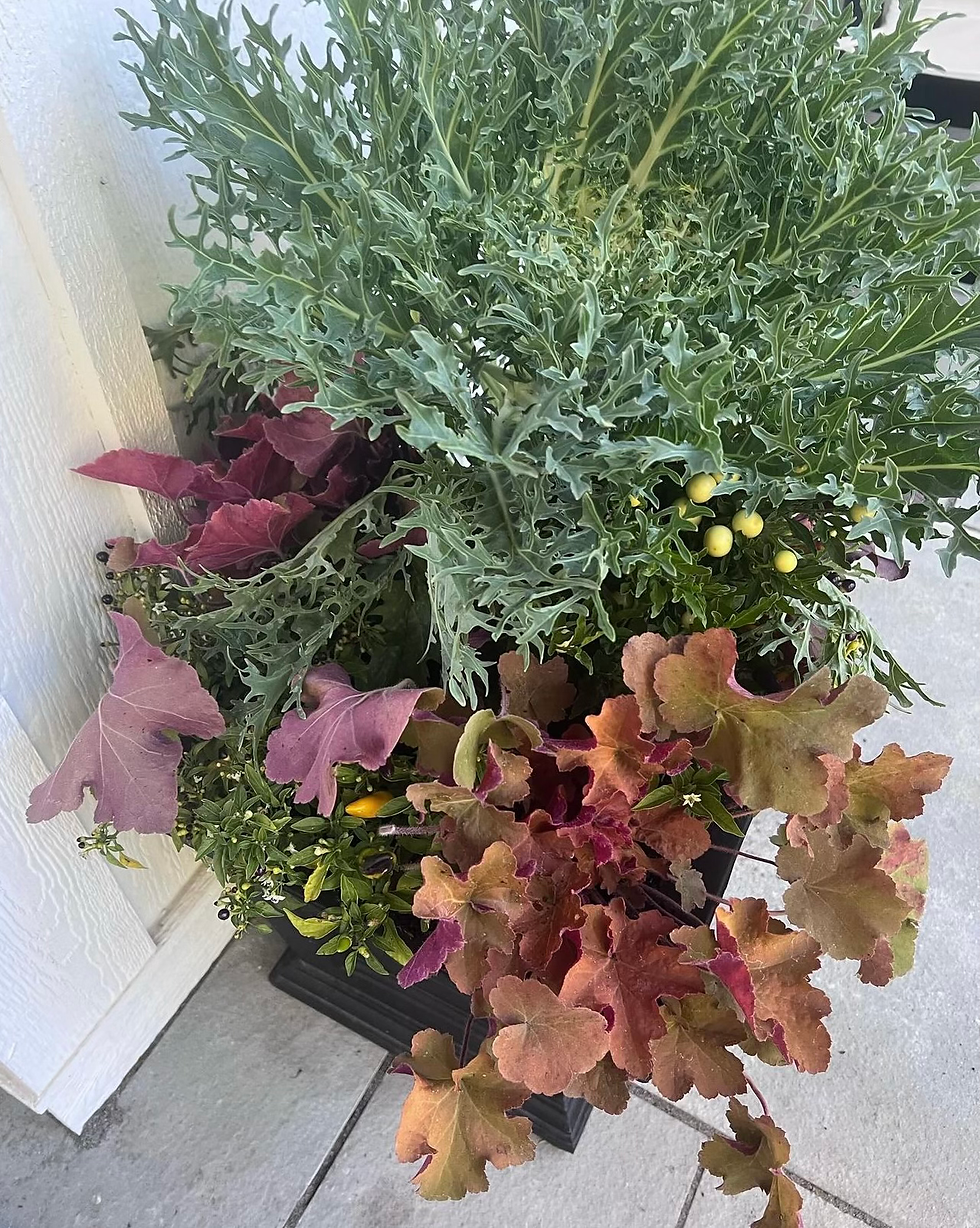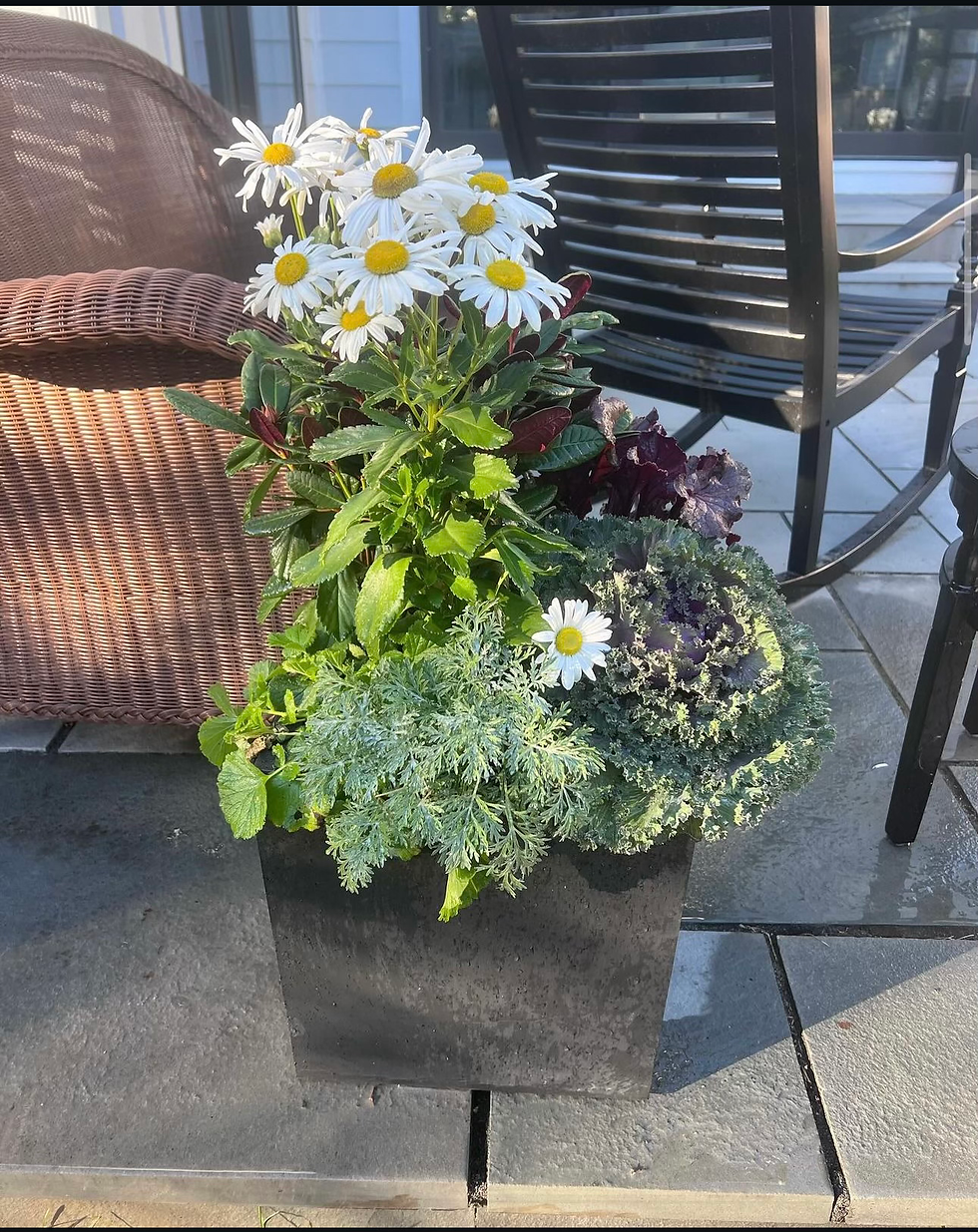Why We Love Variety in Our Garden
- Leah Marie Mulder

- Oct 27, 2024
- 3 min read
Good morning everyone and welcome to another Floral Bar Sunday!
Halloween is only a few days away and there's a forecasted day next week that's close to eighty degrees....if it's not Halloween-y weather on Halloween I'll be disappointed! Nonetheless, the beautiful weather continues to prolong the season where our plants can thrive and bring pops of warmth and color to our gardens. We've been on the subject of native perennials to highlight the essence of the season, and this week we are continuing our perennial talk.
We've learned that perennials are best planted in the autumn season for many reasons, but there are some other factors that might convince you to add some different native and non-natives to your garden. Lakeshore Athletic Sports and Fitness in Chicago is ahead of the curve right now by doing just that - mixing native perennials and non-native perennials in their garden. This is beneficial in so many ways, so let's dive into some.

First, planting natives in general is beneficial to the local environments, ecosystems, and wildlife and they are generally able to withstand extreme weather conditions and adapt much easier where they grow natively. This isn't to say that all non-natives are "bad" for the environment and ecosystems, but when planting non-natives it's important to mix them in with natives to ensure that the enviroment and animals aren't negatively impacted. Local wildlife feeds off the plants, and natives require less water and maintenance due to deeper root systems, which is great for the climate and creating a biodiverse habitat in your garden. Pollination is also a huge factor in planting natives, but ensuring that there are enough natives to be a food source to these pollinators is essential.

With this being said, it's important to be mindful of the nonnative species you are planting in your garden, as many can be invasive and harmful to the local perennials, wildlife, and environment. Having a larger percentage of natives in your garden is the most beneficial; keeping in mind not wanting the natives to have to compete with the non-natives.
While we love supporting ecosystems and creating a biodiverse environment, and it's natural to use some sort of repellent in your garden for mosquitos and ticks (gross), most of us familiar with DEET. A lot of chemicals are naturally occuring, but we know a lot of chemicals that contain toxins that are harmful to humans, animals, plants, and the environment as a whole. Have you heard of beautyberry? These are actual plants with little purple berries at the end which grow in clusters. They last well into the winter and become an important survival food source for birds and other animals, even if it's a last resort. At Floral Bar, we are using this beautiful beautyberry to create our own natural DEET to use in your garden, sans all of the chemicals and toxins found in many of the repellents out there. It's amazing to be able to use plants to benefit other plants, and this is exactly what we are trying to do. It's been used as a remedy to treat mosquito bites for many years, so using it in a larger capacity to protect your garden and plants seems like it's fulfilling its true purpose.

I hope your perennial journey has been knowledgable, colorful, and a fun way to get outside and soak up some Vitamin D this autumn season. Don't forget to contact us with any of your garden needs - we love what we do and want to share the love of plants and beauty. In the meantime enjoy the last few days of October and the rest of the sunshine, and don't eat too much candy! Just kidding, you can do whatever you want. Happy Halloween Everyone!!
Xoxo,
Alyssa & The Floral Bar Team




Comments